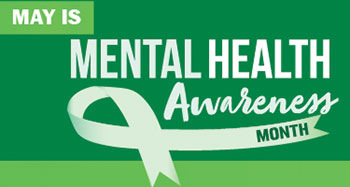Meeting mental health needs is part of the mission of ‘what Catholic Charities does’ to offer people hope
By Natalie Hoefer
 Charity seeks to help those in need.
Charity seeks to help those in need.
Catholic charity seeks to meet the needs of the entire person—body, mind and spirit.
“Catholic Charities advocates for the holistic well-being of individuals, addressing their physical, mental and spiritual needs,” says David Bethuram, executive director of the archdiocesan Secretariat of Catholic Charities.
Such an approach is “in alignment with the concept of integral human development as supported by the Church,” he adds, noting that mental health issues “permeate various aspects of life, impacting employment, relationships and community dynamics.”
But mental health services are not always easily accessible or affordable.
“Within the archdiocese, there is a significant deficit in behavioral/mental health services, leaving those with limited resources with few viable options,” says Bethuram.
“Recognizing this gap, Catholic Charities endeavors to bridge it by offering accessible mental health support to underserved populations,” accepting most insurances and offering a sliding fee scale to make the services available regardless of ability to pay.
(Related: May is Mental Health Awareness Month: Catholic Charities and local Catholic counselors can help)
Those services have expanded to two new locations since 2018.
Lack of access ‘to this kind of help’
Catholic Charites has offered mental health counseling in Bloomington and Indianapolis for years.
But mental health issues have been increasing, even before the COVID-19 pandemic.
A 2023 national Gallup poll shows a more than 10% increase since 2015 in the number of adults with depression. And the 500% increase in death by opioid overdose in Indiana since 1999 (in.gov/mph/projects/opioid-epidemic) cries for the need of mental health services.
As those needs have increased, Catholic Charities has responded, bringing Martinsville and Seymour into the fold of its mental health offerings.
In 2018, Catholic Charities Indianapolis (CCI) partnered with IU Health Morgan in Martinsville to offer counseling services for adults and children referred by IU Health Morgan physicians and community referrals, thanks to a Kendrick Foundation grant.
“As a mental health agency, we try to help with rural areas,” says Beth Goodrich, mental health program director for CCI. “People in small towns and rural areas frequently don’t have access to this kind of help.”
Such proved to be the case for Jackson County in central southern Indiana, as Bethuram learned in January of 2022.
‘That’s what Catholic Charities does’
It was then that the Secretariat of Catholic Charities reached out to the heads of the archdiocese’s 11 deaneries “asking if we could attend one of their clergy/pastoral staff deanery meetings to discuss the social service needs in parishes or the wider community where they minister.
“Mental health services was one of the issues that was brought up most often. That was true for the Seymour Deanery.”
Bethuram and other archdiocesan leaders later met with Father Daniel Staublin, pastor of St. Ambrose Parish in Seymour, and a representative of Schneck Medical Center in Seymour “to discuss the possibility of Catholic Charities working in conjunction with Schneck to improve mental health services in Jackson County,” he says.
The thought became a reality through two grants Schneck Medical Center received from Indiana’s Division of Mental Health and Addiction in 2023 to address opioid and other drug addictions.
“Schneck asked us to partner with them for the mental health piece,” says Goodrich. “They were looking for an agency to partner with that serves others regardless of financial resources. That’s what Catholic Charities does.
“Plus our partnership in Martinsville showed that we had experience working in collaboration with a health care facility.”
Through the partnership, CCI was able to provide counseling services in Seymour to physician- and community-referred individuals “experiencing or at risk of opioid or substance use disorder,” Goodrich explains.
“They either needed to be in recovery for substance abuse or have a type of risk, like symptoms or family history that could lead to substance abuse.”
The goal was “to address underlying issues related to and exacerbating their substance use behaviors,” she continues. “This can include mental health conditions and symptoms like depression, PTSD [post-traumatic stress disorder], anxiety, emotional-social development delays, problem-solving, impulsivity, suicidality” and more.
‘Mental health counseling is life-changing’
Such conditions are not isolated to those recovering from substance abuse. Fortunately, the Seymour location is now able to offer physician-and community-referred mental health services to those in need beyond those dealing with drug addictions.
Goodrich emphasizes the importance of seeking counseling when any form of mental health issue arises, noting that Catholic Charities is there to help.
“We want to help others, especially those who are really struggling in life who have limited resources,” says the licensed marriage and family therapist. I’ve heard some say they were turned away [from counseling] at other places. That’s just not right.
“If you’re depressed or suicidal, or whatever mental health challenges you have, getting that help is imperative,” she says. “If you want to succeed and be your best self, you have to have that help. It’s like building a house without a foundation—you just have to tackle it.”
Goodrich admits that there is still a stigma regarding seeking mental health assistance.
“That baffles me,” she says. “I’ve had clients say more than once that [counseling] has really saved their life.
“Mental health counseling is life-changing. It can help you have hope. Some might think it’s scary, but it’s not—we just want to help and are trained to do it.” †
Related column: A path to recovery: navigating mental health challenges with resiliency and hope)
 Charity seeks to help those in need.
Charity seeks to help those in need.